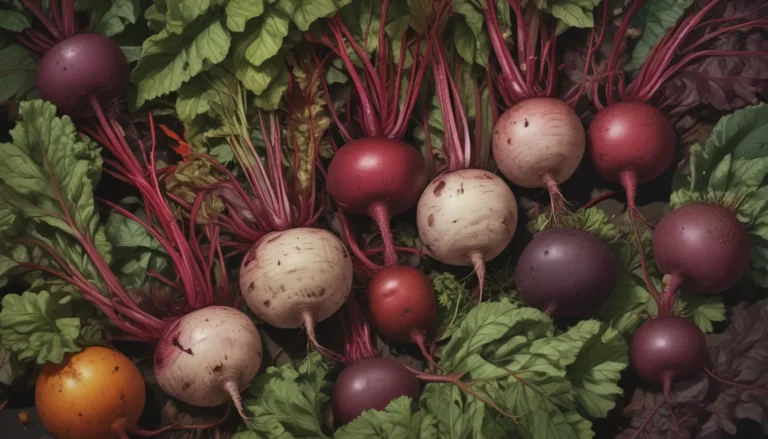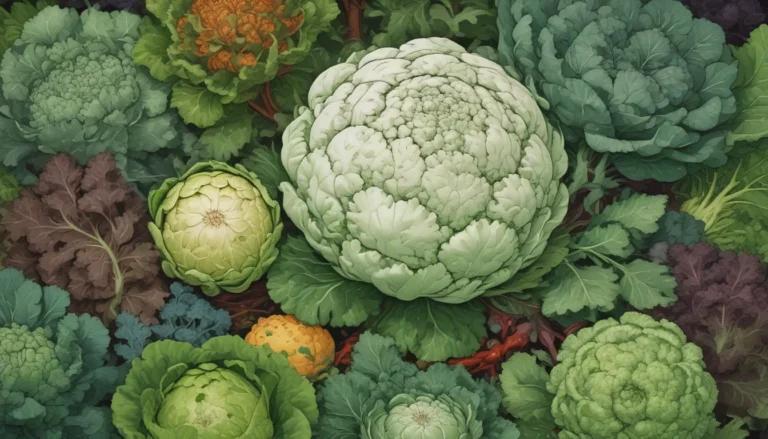Mastering the Art of Fertilizing Canna Lilies

Are you considering adding beautiful canna lilies to your garden? These tropical and subtropical plants are a fantastic addition to any outdoor space, but they do require some extra care and attention when it comes to fertilizing to ensure they produce full, luscious leaves and stunning blooms.
In this comprehensive guide, we will explore the best practices for fertilizing your canna lilies to help you achieve a thriving garden filled with these gorgeous plants. From inspecting your soil to selecting the right type of fertilizer, we will cover everything you need to know to keep your canna lilies healthy and happy.
Getting Started: Soil Health
Before you can begin fertilizing your canna lilies, it’s essential to start with healthy soil. Tropical and subtropical plants like canna lilies have specific soil needs that must be met to thrive outside of their native environment.
Inspect Your Soil
Begin by observing the area where you plan to plant your canna lilies. The soil should be fertile, with the ability to maintain adequate moisture levels and receive at least six hours of sunlight each day. If your soil needs help retaining moisture, consider amending it with organic material such as well-rotted compost, leaf mold, or aged manure.
If creating your own compost isn’t an option, you can purchase products like Compost Plus, which can be mixed directly into the soil or used as a top dressing to improve moisture retention and long-term soil health.
Test Your Soil
Testing your soil is crucial to ensure that it meets the specific needs of your canna lilies. Ideally, canna lilies prefer a soil pH of 6.0 to 6.5 for optimal nutrient absorption.
Using a soil test kit like the Luster Leaf Soil Test Kit allows you to assess the acidity of your soil as well as the levels of essential plant macronutrients such as nitrogen, phosphorus, and potassium. By testing your soil, you can determine its quality and make informed decisions about necessary amendments.
Soil Amendments
In addition to organic material, you can consider adding specific soil amendments to improve the overall health of your soil and create the perfect environment for your canna lilies.
- Coffee Grounds: Save your coffee grounds to naturally lower the pH of your soil and keep your canna lilies happy.
- Elemental Sulfur: Use elemental sulfur, such as aluminum sulfate, to condition the soil and maintain the ideal pH level for your plants.
- Lime: If your soil is too acidic, consider using lime to adjust the pH and provide essential nutrients like calcium and magnesium.
By incorporating these soil amendments, you can create a healthy environment for your canna lilies to thrive and produce beautiful blooms.
How and When to Fertilize
Fertilizing your canna lilies is essential for promoting growth and flowering throughout the growing season. While canna lilies are not picky about fertilizer, regular feeding will help them flourish and continue to produce new blooms.
When selecting a fertilizer for your canna lilies, you can choose from a variety of options, including:
- Chemical Fertilizers: Consider using a balanced, all-purpose 10-10-10 NPK product or one that encourages more blooms at a ratio of 5-10-5 NPK.
- Organic Fertilizers: Organic options may offer a more natural approach to feeding your plants, though they may not provide specific nutrient ratios.
Begin fertilizing your canna lilies in the early weeks of spring, around March, and continue until approximately eight weeks before the first frost date in your zone.
Available Types of Fertilizer
The frequency of fertilization will depend on the type of fertilizer you choose to use. Let’s explore some common options for fertilizing your canna lilies:
Aquatic Plant Fertilizer
For canna lilies grown in garden ponds, aquatic plant fertilizers are ideal. These fertilizers are available in tablet, liquid, and granular forms and are specifically formulated to promote blooming in aquatic plants.
Ensure that you use aquatic fertilizers designed for pond use to avoid disrupting the pond ecosystem and causing harm to fish and other aquatic life.
Granular Slow-Release Fertilizer
Granular fertilizers are a popular option for potted plants and provide nutrients slowly over time. These fertilizers are convenient for busy gardeners or those looking for a low-maintenance feeding solution.
Apply granular fertilizer around the base of your canna lilies and water deeply to allow the nutrients to penetrate the soil and feed your plants.
Liquid Fertilizer
Liquid fertilizers are a fast-acting option for feeding your canna lilies, as they are quickly absorbed by the plants. However, liquid fertilizers may require more frequent application and careful attention to prevent overfertilization.
Consider using liquid fertilizers derived from fish or other natural sources to provide essential nutrients to your canna lilies. These fertilizers can be applied as a root drench or foliar spray for rapid nutrient uptake.
Kitchen Compost or Manure
Kitchen compost and well-rotted manure are excellent natural fertilizers for lowering soil pH and providing essential nutrients to your canna lilies. Apply these fertilizers twice a year in early spring and early summer to promote healthy growth and flowering.
By incorporating these fertilization methods, you can ensure that your canna lilies receive the nutrients they need to thrive and produce abundant blooms throughout the growing season.
Conclusion
In conclusion, fertilizing canna lilies is a crucial step in maintaining healthy, vibrant plants that will enhance your garden with their striking foliage and colorful blooms. By starting with healthy soil, testing your soil quality, and selecting the right type of fertilizer, you can provide your canna lilies with the essential nutrients they need to grow and flourish.
Whether you choose a chemical, organic, aquatic, granular, liquid, or natural fertilizer, the key is to feed your canna lilies regularly throughout the growing season to support their growth and blooming cycle. With proper care and attention, you can enjoy a garden filled with lush canna lilies that will brighten your outdoor space and attract pollinators for years to come.
If you have experience growing canna lilies in your garden, share your insights and tips in the comments below. Your knowledge and expertise can help others cultivate thriving canna lilies and create a beautiful outdoor oasis to enjoy.
All rights reserved. Any product photos featured in this article are for illustrative purposes only and do not imply endorsement. Thank you for supporting our work by using the provided links to make a purchase.





